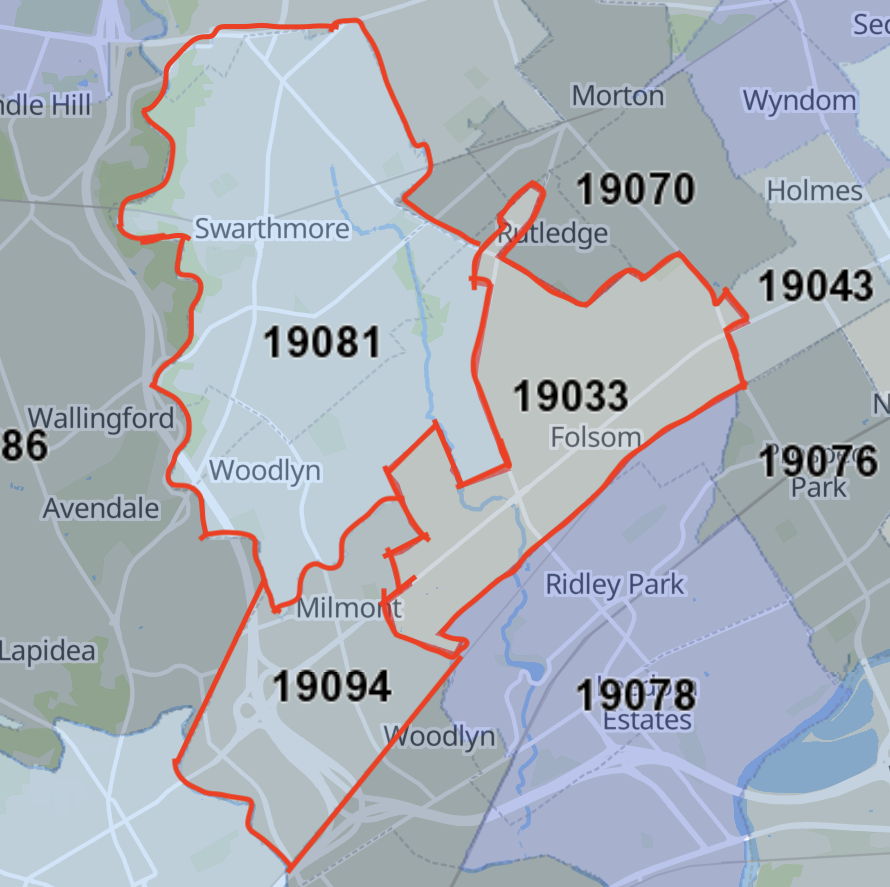Ask The Clergy
Submission Questions & Answers
Why in some scripture did the disciples not recognize Jesus’ face when they saw him after he rose from the dead? It was only through His words did they recognize Him.
Sacred Scripture is not explicit about this so we can speculate.
After the Resurrection, Jesus’ Body was glorified. A glorified body is similar to a physical body but somewhat different. With a glorified body, Jesus was no longer limited to spatial considerations. He could appear, and vanish at will; he could walk through locked doors. He was different yet somehow similar.
Perhaps this was to encourage the disciples, and us by extension, to remember the encounters, the conversations, the beauty of the relationship that they once had with Jesus. The disciples had to do some discerning, they had work to do. Had Jesus appeared as immediately recognizable it would have brought the disciples back to a pre-resurrection experience with Jesus rather than a post-resurrection experience.
The Resurrection changed Jesus. The Resurrection also changed the disciples and encouraged them to accept the invitation to follow him. Eventually, after the Descent of the Holy Spirit, the disciples were spiritually changed so they could go on mission and spread the Good News.
Interestingly, Jesus’ glorified Body still held the marks of the wounds that he suffered to set us free.
What are the seven sorrows of Mary and are they the same as the sorrowful mysteries?
The Seven Sorrows of Our Lady are:
- The Prophecy of Simeon (Luke 2:34-35)
- The Flight into Egypt (Matthew 2:13-21)
- The Loss of Jesus for Three Days (Luke 2:41-50)
- The Carrying of the Cross (John 19:17)
- The Crucifixion of Jesus (John 19:18-30)
- Jesus Taken Down from the Cross (John 19:39-40)
- Jesus Laid in the Tomb (John 19:39-42)
The Seven Sorrows of Our Lady are drawn from the prophecy of Simeon: “and you, yourself, a sword will pierce so that the thoughts of many hearts may be revealed.” (Luke 2:35).
In the fifteenth century, St. Bernardine of Siena took these words to heart and entrusted a world in moral decline to the intercessory love of the heart of Mary.
Two centuries later, St. John Eudes, following the vision of St. Margaret Mary Alacoque, would establish devotion to the Sacred Heart of Jesus and the Immaculate Heart of Mary. The image of the Immaculate Heart includes seven wounds – again a reference to the prophecy of Simeon.
Devotion to the Seven Sorrows of Mary dates to the fourteenth century with St. Bridget of Sweden who advocated prayers during the Avignon Papacy when the Holy Father abandoned the Eternal City and resided instead in southern France.
Devotional prayers to the Seven Sorrows of Our Lady are traditionally associated with Fridays, the day of the Crucifixion of Jesus, and during the month of September, in commemoration of the Feast Days of the Exaltation of the Holy Cross (14 September), and the Our Lady of Sorrows (15 September).
Similarly, the prayers of the Sorrowful Mysteries of the Rosary are traditionally prayed on Fridays. They are:
- The Agony in the Garden
- The Scourging at the Pillar
- The Crowning with Thorns
- The Carrying of the Cross
- The Crucifixion
Note that the fourth and fifth decades of the Sorrowful Mysteries are the fourth and fifth Sorrow of Our Lady.
Where was the first seminary of the Archdiocese of Philadelphia located?
St. Charles Borromeo Seminary was founded in 1832 by Bishop Francis Kenrick. It was originally housed in Old City Philadelphia at Fourth and Walnut, near the site of Old St. Mary’s Church, which was Philadelphia’s first cathedral. The Seminary, needing larger space, moved to 18th and Race Streets in 1838. This was near the site of the current Cathedral of Saints Peter and Paul. This site co-existed with a minor seminary – for high school students in Glen Riddle. Groundbreaking at the Overbrook campus occurred in 1866 with the Seminary opening in 1871. Additional buildings were added at Overbrook in 1928 and in 1971. The current site of St. Charles Borromeo Seminary in Lower Gwynedd opened in August of 2024.
This is a comment to the answer on voting. The article was well written. Pope Benedict’s advice has been a source of comfort in this time of anxiety. Pope Benedict “When a Catholic does not share a candidate’s stand in favour of abortion and/or euthanasia, but votes for that candidate for other reasons, it is considered remote material cooperation, which can be permitted in the presence of proportionate reasons.”
Thank you for your comment. The United States Conference of Catholic Bishops offers a very comprehensive understanding about the roles and responsibilities of citizenship. Information can be found:
For the Dignity of the Human Person: https://www.usccb.org/resources/Dignity-of-the-Human-Person.pdf
For the Role of the Church in American Political Life:
https://www.usccb.org/resources/Role-of-Church-In-American-Political-Life.pdf
For The Common Good:
https://www.usccb.org/resources/Common-Good.pdf
For Solidarity: https://www.usccb.org/resources/Solidarity.pdf
For Subsidiarity: https://www.usccb.org/resources/Subsidiarity.pdf
Is it a serious sin to receive the Eucharist while not in a complete fasting state, especially if that person is underweight and over a certain age?
The requirements for fasting apply to all individuals. Thus the Code of Canon Law (Church Law) 919 states: “One who is to receive the Most Holy Eucharist is to abstain from any food or drink, with the exception only of water and medicine, for at least the period of one hour before Holy Communion.
Some medications require that they be taken with food, or with certain liquids other than water. A simple way to accommodate this would be to take the medications well prior to attending Mass. However, this is not always the case especially when some medications are time sensitive. Thus the third paragraph of Canon 919 clarifies: “Those who are advanced in age or who suffer from any infirmity, as well as those who take care of them, can receive the Most Holy Eucharist even if they have taken something during the previous hour.
Therefore, age and health considerations factor into the requirements of fasting.
Why does the Catholic Bible have seven more books than other versions?
The Catholic Bible includes seven Old Testament Books that are not included in the canon of other faith traditions. These seven – Tobit, Judith, Baruch, Sirach, Wisdom, and First and Second Maccabees were not included in the Canon of Hebrew Scripture that was developed in the first century A.D. Rather than being written in Hebrew they were written in Greek. Greek was the prevalent language in the ancient world when these books were being written. Greek is also the language of the New Testament so, its inclusion in the First Testament would appear to give credence to the second.
The Catholic Church has included these books as inspired by the Holy Spirit based on the apostolic tradition of its use in the early Church. These seven, along with certain chapters of the Books of Esther, and Daniel, have been excluded from the Protestant version of Sacred Scripture for two reasons. First, is its exclusion in the Hebrew Scripture, based on language; second, these Books contain themes that are not consistent with the teaching of the Reformation.
Questions have been submitted about elections, the conduct of politicians, and the responsibilities of Catholic voters.
The United States Conference of Catholic Bishops offers a Faithful Citizenship Guide that informs voters of how to properly form your conscience before casting ballots. An excerpt from this document is below. The document may also be found at the following link.
As Catholics and Americans, we are blessed to be able to participate in our nation’s political and public life. Our freedoms respect the dignity of individuals and their consciences and allow us to come together for the common good. Election seasons, therefore, should contain a sense of gratitude and hope. Our love for this country, our patriotism, properly impels us to vote.
But increasingly, it seems, election seasons are a time of anxiety and spiritual trial. Political rhetoric is increasingly angry, seeking to motivate primarily through division and hatred. Fear can be an effective tool for raising money. The most heated arguments online often get the most clicks. Demonizing the other can win votes.
We propose once more the moral framework of Forming Consciences for Faithful Citizenshipprecisely as pastors, inspired by the Good Samaritan, with the hope of binding these wounds and healing these bitter divisions. This document is not based on personalities or partisanship, the latest news cycle, or what’s trending on social media. Instead, it reflects the perennial role of the Church in public life in proclaiming timeless principles: the infinite worth and dignity of every human life, the common good, solidarity, and subsidiarity. Not sure what these mean? We invite you to read a copy of Forming Consciences for Faithful Citizenship and learn more.
Allowing your conscience to be stretched and formed by these reflections can give you peace! They point to Jesus’ challenge to show mercy to those in need, just as the Good Samaritan. As Pope Francis writes, “Here, all our distinctions, labels and masks fall away: it is the moment of truth. Will we bend down to touch and heal the wounds of others?” (Fratelli Tutti, no. 70.) Let this be in our hearts when we talk about politics and make political choices.
Some might be tempted to say: yes, of course, we will be the ones who help by promoting good and opposing evil. But when confronted with so much good at risk and so much evil, it is a great challenge to avoid fear and anger. The threat of abortion remains our pre-eminent priority because it directly attacks our most vulnerable and voiceless brothers and sisters and destroys more than a million lives per year in our country alone. Other grave threats to the life and dignity of the human person include euthanasia, gun violence, terrorism, the death penalty, and human trafficking. There is also the redefinition of marriage and gender, threats to religious freedom at home and abroad, lack of justice for the poor, the suffering of migrants and refugees, wars and famines around the world, racism, the need for greater access to healthcare and education, care for our common home, and more. All threaten the dignity of the human person.
So precisely how we promote good and oppose evil is an essential part of answering the Lord’s call, of being a disciple. As St. Paul reminds us:
Never let evil talk pass your lips; say only the good things men need to hear, things that will really help them. Do nothing that will sadden the Holy Spirit with whom you were sealed against the day of redemption. Get rid of all bitterness, all passion and anger, harsh words, slander, and malice of every kind. In place of these, be kind to one another, compassionate, and mutually forgiving, just as God has forgiven you in Christ (Eph. 4:29-32).
Thus, Pope Francis exhorts us to “genuine dialogue and openness to others,” by which we may “be frank and open about our beliefs, while continuing to discuss, to seek points of contact, and above all, to work and struggle together” (Fratelli tutti, no. 203). This applies to the faithful both as voters and as candidates—we must consider not only candidates’ positions on these issues, but their character and integrity as well.
How can we meet this challenge? Again, St. Paul gives us a way: Put on “the mind of Christ” (1 Cor. 2:16). Take time away from social media and spend time with Holy Scripture and the Blessed Sacrament. Turn off the TV and the podcast, and listen in silence. Volunteer at a soup kitchen, a homeless shelter, a crisis pregnancy center. Serve the poor, the needy, the outcast. Pray often, letting faith inform your political participation.
Participation in political life also requires judgments about concrete circumstances. While the bishops help form the laity in accordance with basic principles, they do not tell the laity to vote for particular candidates. On these often complex matters, it is the laity’s responsibility to form their consciences and grow in the virtue of prudence to approach the many and varied issues of the day with the mind of Christ. Conscience is “a judgment of reason” by which one determines whether an action is right or wrong (See Catechism of the Catholic Church, no. 1778). It does not allow us to justify doing whatever we want, nor is it a mere “feeling.” Conscience—properly formed according to God’s revelation and the teaching of the Church—is a means by which one listens to God and discerns how to act in accordance with the truth.1 The truth is something we receive, not something we make. We can only judge using the conscience we have, but our judgments do not make things true.
It is our responsibility to learn more of Catholic teaching and tradition, to participate in Church life, to learn from trustworthy sources about the issues facing our communities, and to do our best to make wise judgments about candidates and government actions.
We must also seek wisdom, as Holy Scripture instructs:
Wisdom from above is first of all innocent. It is also peaceable, lenient, docile, rich in sympathy and the kindly deeds that are its fruits, impartial and sincere. The harvest of justice is sown in peace for those who cultivate peace (Jas. 3:17-18).
The teachings of the Church, moreover, offer a vision of hope, where justice and mercy abound, because God is the infinite source of all goodness and love. With this wisdom and hope, we can find a way to bend down as the Good Samaritan did, through the fear and divisions, to touch and heal the wounds.
May God bless you as you consider and pray over these challenging decisions. May God bless our nation with true wisdom, peace, and mutual forgiveness, that we may decide together, through our democratic processes, to uphold the dignity of life and the common good.

Follow on Social Media

